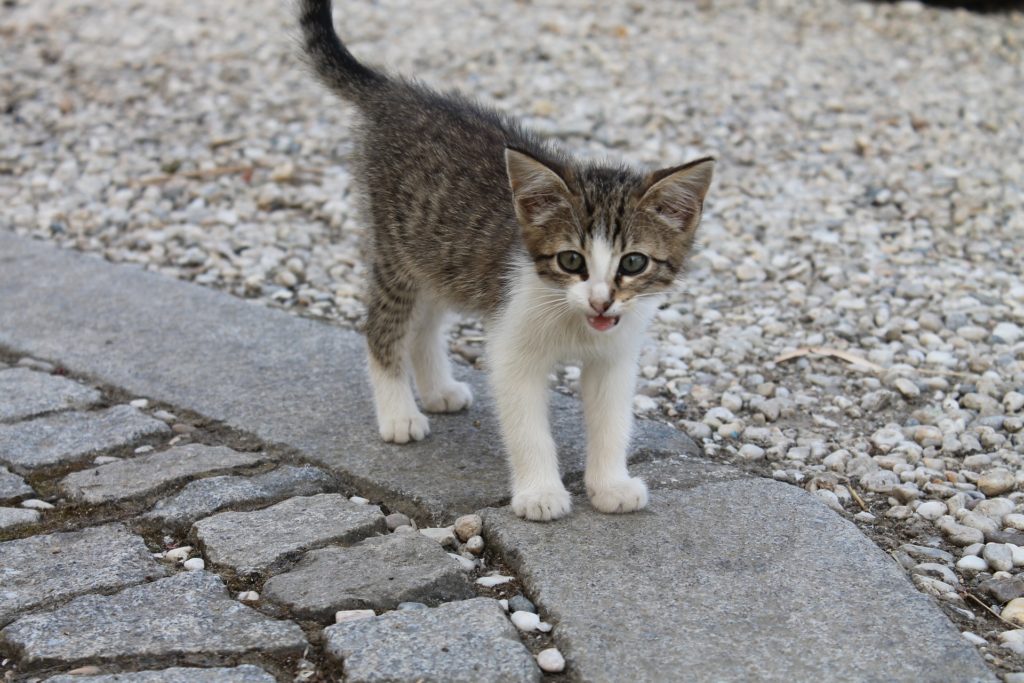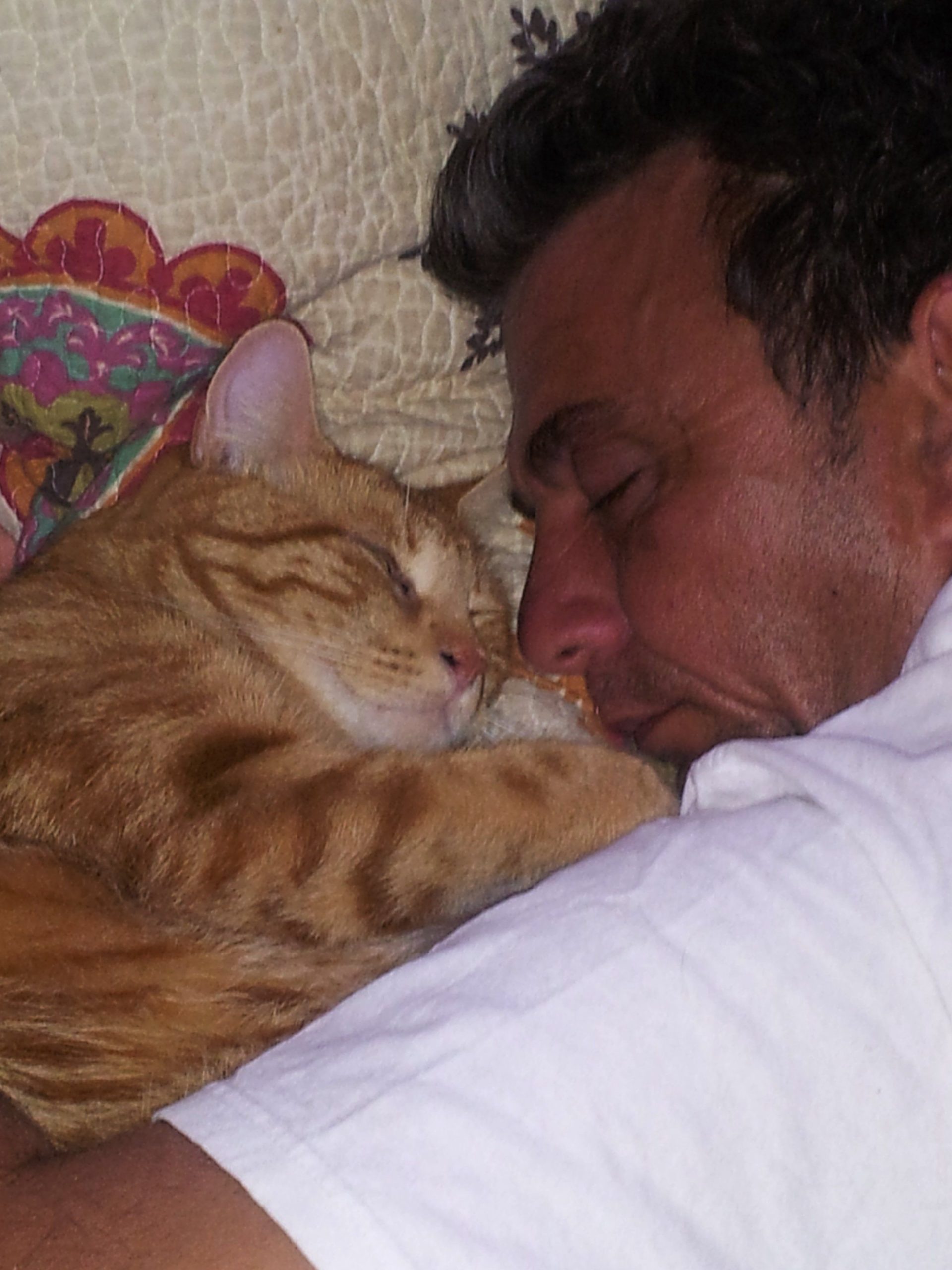Contents
- I. Introduction
- II. The Importance of Socialization
- III. Ideal Time Frame for Leaving Kittens Alone
- IV. Preparing the Environment
- V. Signs of Stress or Anxiety in Kittens
- VI. Alternatives to Leaving Kittens Alone
- VII. Frequently Asked Questions
- 1. Is it safe to leave my kitten alone for 8 hours?
- 2. What should I do to ensure my kitten’s safety while I’m away?
- 3. How do I make sure my kitten doesn’t get bored or lonely?
- 4. Can I leave my kitten loose in the house?
- 5. Should I hire a pet sitter or ask a friend to check on my kitten?
- 6. What if my kitten has separation anxiety?
- 7. How can I gradually increase the time my kitten can be alone?
- 8. Can I leave my kitten alone overnight?
I. Introduction

Leaving a kitten alone for 8 hours can be a concerning thought for many pet owners. Kittens, being young and vulnerable, require constant care and attention. However, with proper preparation and a few precautions, it is possible to leave your kitten alone for a few hours without compromising their well-being.
Understanding Your Kitten’s Needs
Before considering leaving your kitten alone, it is important to understand their basic needs. Kittens thrive on social interaction, playtime, and a structured routine. They require regular feeding, a clean litter box, and a safe, stimulating environment. By ensuring these needs are met, you can create a conducive environment for your kitten even when you’re not around.
Preparing the Environment
Prior to leaving your kitten alone, it is vital to kitten-proof your home. Remove any hazardous objects or substances that may pose a danger to your curious feline. Secure electrical cords, fragile items, and toxic plants. Provide your kitten with toys, scratching posts, and interactive puzzles to keep them entertained and mentally stimulated during your absence.
Gradual Alone Time Introduction
A kitten should be gradually introduced to being alone. Start by leaving them alone for short periods, and gradually increase the duration over time. This will help them develop independence and reduce separation anxiety. Before leaving, engage your kitten in playtime to tire them out, ensuring they have a comfortable place to rest.
Ensuring Basic Needs are Met
Before leaving your kitten alone, make sure they have access to fresh water, food, and a clean litter box. Consider leaving interactive toys or treat-dispensing puzzles to keep them mentally engaged. Additionally, provide a cozy bed or blanket where they can feel secure and comfortable.
Seeking Companionship
If you’re concerned about leaving your kitten alone for extended periods, consider getting a companion for them. Another kitten or a compatible adult cat can provide much-needed companionship and alleviate their loneliness. However, ensure proper introductions and compatibility before bringing a new feline into the household.
While it is possible to leave your kitten alone for 8 hours, it is important to prioritize their well-being and ensure their needs are met. By following these guidelines, you can help your kitten adjust to being alone and provide them with a safe and stimulating environment even when you’re not around.
II. The Importance of Socialization

Socialization is a crucial aspect of a kitten’s development and overall well-being. Just like humans, kittens are social creatures and need interaction with others to thrive. In this section, we will explore the importance of socialization for kittens and how it can positively impact their lives.
1. Building Confidence and Trust
Socializing kittens from an early age helps them build confidence and trust in humans and other animals. By exposing them to different environments, people, and animals, they become more comfortable and adaptable in various situations. This early socialization lays the foundation for their future interactions and relationships.
2. Preventing Behavioral Issues
Kittens that are not properly socialized may develop behavioral issues such as fear, aggression, or excessive shyness. Socialization helps them learn appropriate behaviors and how to interact with other animals and humans. It reduces the likelihood of future behavior problems and ensures a happy and well-adjusted cat.
3. Promoting Emotional Well-being
Regular socialization enriches a kitten’s life and promotes emotional well-being. Interacting with others stimulates their minds, provides mental stimulation, and prevents boredom. Socialized kittens are generally happier, more confident, and less prone to anxiety or stress.
4. Enhancing Health and Safety
When kittens are socialized, they become accustomed to various stimuli, such as car rides, loud noises, or handling by veterinarians. This familiarity makes it easier to provide them with necessary medical care and reduces stress during vet visits. It also helps prevent accidents or injuries by teaching them to avoid dangerous situations.
5. Facilitating Adoption
Socialized kittens are more likely to find forever homes quickly. Adopters are often attracted to kittens that are friendly, confident, and approachable. By socializing kittens, shelters and rescues increase their chances of finding loving families and reducing the number of homeless cats.
III. Ideal Time Frame for Leaving Kittens Alone

Leaving kittens alone for extended periods of time can be a cause for concern for many pet owners. As social animals, kittens crave companionship and interaction, and leaving them alone for too long can lead to feelings of anxiety and loneliness. It is important to establish an ideal time frame for leaving kittens alone to ensure their well-being and happiness.
The Age Factor
The ideal time frame for leaving kittens alone varies depending on their age. Young kittens, especially those below the age of 12 weeks, require constant care and attention. They are still developing and need to be fed frequently, kept warm, and stimulated. Leaving them alone for more than a couple of hours at a time is not recommended.
As kittens grow older, their ability to handle being alone for longer periods increases. By the age of 4 to 6 months, most kittens can handle being alone for up to 4 hours at a time. However, it is still advisable to gradually increase the time they spend alone to ensure they adjust well.
Gradual Independence
When preparing kittens to be left alone, it is essential to introduce them to the concept gradually. Begin by leaving them alone for short periods, starting with just a few minutes and gradually increasing the time as they become more comfortable. This gradual process helps them develop a sense of independence and reduces the likelihood of separation anxiety.
Provide a safe and comfortable environment for your kittens to explore when they are alone. Ensure they have access to their litter box, fresh water, and appropriate toys to keep them entertained. This will help them feel secure and content during their alone time.
Enrichment Activities
To prevent boredom and stimulate their minds, it is important to provide enrichment activities for kittens when they are left alone. Interactive toys, puzzle feeders, and scratching posts can keep them engaged and mentally stimulated. Additionally, leaving a radio or television on at a low volume can provide some background noise and make them feel less alone.
Consider Outside Help
If you anticipate leaving your kittens alone for longer periods, consider enlisting the help of a pet sitter or a trusted friend or family member. Having someone check in on your kittens, play with them, and provide companionship can greatly alleviate their loneliness and ensure their well-being.
IV. Preparing the Environment

When it comes to leaving your kitten alone for 8 hours, it’s important to ensure that the environment is safe and comfortable for them. Here are some tips to help you prepare:
1. Create a designated space
Set up a specific area in your home where your kitten can stay while you’re away. This could be a spare room, a bathroom, or even a large crate. Make sure the space is secure and free from any hazards that could harm your kitten.
2. Provide food and water
Make sure your kitten has access to fresh food and water while you’re gone. Use sturdy bowls that won’t easily tip over and consider investing in an automatic feeder to ensure they are fed at regular intervals.
3. Make the space entertaining
Kittens are naturally curious and playful, so provide them with toys and interactive items to keep them entertained. Scratching posts, tunnels, and puzzle toys can help keep their minds and bodies active while you’re not around.
4. Consider a companion
If your kitten gets lonely or anxious when left alone, you may want to consider getting them a companion. Another cat or a compatible pet, such as a small dog, can provide companionship and help alleviate separation anxiety.
5. Create a cozy environment
Make sure the space is comfortable for your kitten. Provide a soft bed or blanket for them to curl up on, as well as a safe hiding spot where they can retreat if they feel overwhelmed.
6. Ensure proper ventilation
Make sure the room or space where your kitten will be staying has adequate ventilation. This will help regulate temperature and prevent the area from becoming stuffy or uncomfortable.
7. Leave some entertainment
Consider leaving a radio or TV on low volume to provide some background noise and make your kitten feel less alone. The familiar voices and sounds can help them feel more secure.
8. Test the setup
Before leaving your kitten alone for the full 8 hours, do a trial run. Leave them in the designated space for shorter periods, gradually increasing the duration. This will help you gauge their comfort level and make any necessary adjustments.
By following these tips and preparing the environment properly, you can ensure that your kitten is safe, comfortable, and entertained while you’re away for 8 hours.
V. Signs of Stress or Anxiety in Kittens

Leaving your kitten alone for extended periods can potentially lead to stress or anxiety. It’s important to be aware of the signs that indicate your kitten may be experiencing these emotions so that you can address the issue promptly. Here are some common signs to watch out for:
1. Excessive Meowing
If you notice your kitten meowing excessively when left alone, it could be a sign of distress. Kittens may use vocalization as a way to seek attention or express their anxiety. Pay attention to the frequency and intensity of the meowing to gauge their level of distress.
2. Hiding or Avoidance
Kittens that are stressed or anxious may try to hide or avoid interaction. If you find your kitten consistently hiding in unusual places or avoiding contact with you or other pets, it could be an indication of their discomfort when left alone.
3. Destructive Behavior
One common manifestation of anxiety in kittens is destructive behavior. If your kitten becomes destructive, such as scratching furniture, chewing on items, or urinating outside the litter box, it may be a sign of stress. This behavior often occurs when they feel anxious or bored due to prolonged periods of isolation.
4. Excessive Grooming
Kittens under stress may resort to excessive grooming as a coping mechanism. If you notice your kitten obsessively licking or biting their fur, causing hair loss or skin irritation, it could be a sign of underlying anxiety. Monitor their grooming habits and seek veterinary advice if necessary.
5. Changes in Appetite
Stress and anxiety can also impact a kitten’s appetite. Some kittens may experience a decrease in appetite, while others may overeat as a result of emotional distress. Monitor their eating habits and consult your veterinarian if you notice any significant changes in their appetite or weight.
Remember, every kitten is unique, and their response to being alone may vary. If you observe any of these signs, it’s essential to provide your kitten with appropriate care and attention. Consider implementing strategies to alleviate their anxiety, such as providing engaging toys, interactive puzzles, and a comfortable environment. Additionally, consulting with a veterinarian can help address any underlying health concerns contributing to their stress. By understanding and addressing your kitten’s needs, you can ensure their well-being even when you need to be away for a few hours.
VI. Alternatives to Leaving Kittens Alone
Leaving kittens alone for extended periods of time can be stressful and potentially risky for their well-being. However, there are alternatives to ensure that your furry friends are safe and entertained even when you can’t be there to keep them company. Here are some suggestions:
1. Hire a Pet Sitter or Pet Walker
If you know you’ll be away for a significant amount of time, consider hiring a pet sitter or pet walker. These professionals can provide companionship, playtime, and even feed your kitten while you’re away. Look for a reliable and experienced individual who will give your furry friend the attention they need.
2. Enlist the Help of a Friend or Neighbor
If hiring a pet sitter is not an option, reach out to a trustworthy friend or neighbor who can check in on your kitten. They can provide some playtime and ensure that your kitten has fresh food and water. Make sure to leave clear instructions on how to care for your kitten and make the necessary arrangements in advance.
3. Interactive Toys and Puzzles
Kittens are curious and playful by nature. Provide them with interactive toys and puzzles that can keep them entertained and mentally stimulated while you’re away. Look for toys that dispense treats or toys that have moving parts to engage their hunting instincts.
4. Set Up a Safe and Comfortable Space
Create a safe and comfortable space for your kitten to spend their alone time. Set up a cozy bed, provide fresh water, and ensure there are no hazards in the area. Consider leaving a few toys or scratching posts to keep them occupied. You can also leave a radio or TV on low volume to provide some background noise and make them feel less alone.
5. Consider Getting a Companion for Your Kitten
If you’re regularly away for long hours, you might want to consider getting a companion for your kitten. Another cat or even a small dog can provide companionship and playtime, keeping each other company in your absence. Make sure to introduce them properly and monitor their interactions to ensure they get along.
Remember, every kitten is unique, and their needs may vary. Take the time to understand your kitten’s behavior and preferences to find the best solution for their well-being when you can’t be there with them. The goal is to minimize stress and ensure they feel loved even when you’re not around.
VII. Frequently Asked Questions
Here are some commonly asked questions related to leaving kittens alone for 8 hours:
1. Is it safe to leave my kitten alone for 8 hours?
Leaving a kitten alone for 8 hours can be a concern as they are young and require attention and care. However, with proper preparation and provisions, it can be done safely.
2. What should I do to ensure my kitten’s safety while I’m away?
Prioritize creating a safe and comfortable environment for your kitten. Provide them with enough food, water, toys, and a litter box. Baby-proof the area to prevent any hazards.
3. How do I make sure my kitten doesn’t get bored or lonely?
Engage your kitten with interactive toys, scratching posts, and puzzle feeders. Consider getting another kitten as a companion for playtime. Leaving on some calming music or a TV show can also help combat loneliness.
4. Can I leave my kitten loose in the house?
It’s generally recommended to confine your kitten to a safe area with limited access to potential dangers. Provide them with a designated space like a playpen or a kitten-proofed room.
5. Should I hire a pet sitter or ask a friend to check on my kitten?
If possible, having someone check on your kitten during the day is ideal. A pet sitter or a trusted friend can ensure your kitten’s well-being, provide social interaction, and attend to any immediate needs.
6. What if my kitten has separation anxiety?
If your kitten shows signs of distress when left alone, consult with a veterinarian. They can recommend strategies or even medications to help alleviate separation anxiety.
7. How can I gradually increase the time my kitten can be alone?
Start by leaving your kitten alone for short periods and gradually increase the duration. This will help them adjust to being alone and build their independence.
8. Can I leave my kitten alone overnight?
Leaving a kitten alone overnight is generally not recommended, especially if they are still young. It’s best to have someone check on them or consider alternative arrangements.
Remember, every kitten is unique, so it’s important to assess their individual needs and consult with a veterinarian for specific guidance on leaving them alone for extended periods.

Jackson is an accomplished content writer with a flair for captivating storytelling. With a Bachelor’s degree in English Literature from the prestigious University of California, Berkeley, Hunter’s educational background has honed his writing skills to perfection. His love for felines is evident in his extensive knowledge of cat behavior and care, making him an expert in the field. Hunter’s passion for cats has led him to contribute insightful articles to various online platforms, providing valuable information and tips to cat owners worldwide. With his exceptional writing abilities and deep understanding of cats, Hunter continues to create engaging content that resonates with readers and leaves a lasting impact.
